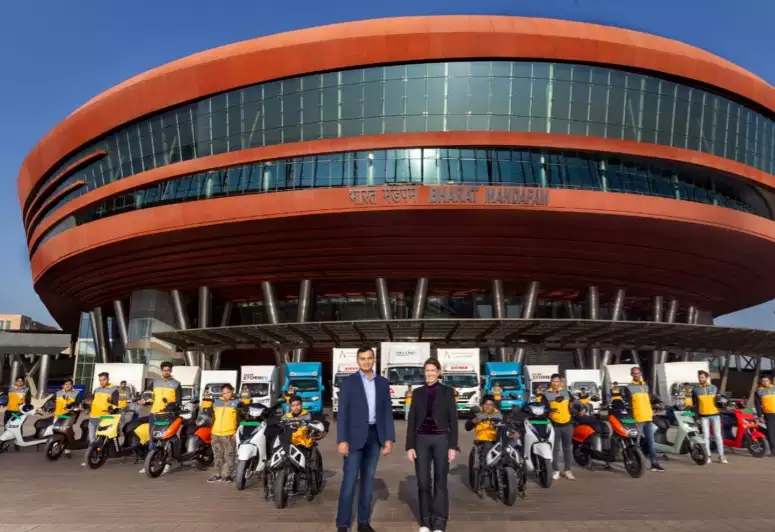 The company is also facilitating accessible financing options for electric two-wheelers, three-wheelers, and trucks.
The company is also facilitating accessible financing options for electric two-wheelers, three-wheelers, and trucks.Amazon India achieved its goal of deploying 10,000 electric vehicles (EVs) in its delivery fleet by October 2024, surpassing its target by over a year. The company aims to achieve net-zero carbon emissions by 2040, aligning with its Climate Pledge commitment and contributing to India's net-zero goal by 2070. The EVs operate across 500 Indian cities, including major metropolitan areas like Delhi, Mumbai, and Bengaluru, and extend to Leh and Gangtok. This initiative significantly reduces reliance on traditional diesel vehicles and lowers carbon emissions.
The Climate Pledge's Laneshift Initiative
Amazon's EV fleet milestone contributes to its commitment to The Climate Pledge, a pact to reach net-zero carbon emissions by 2040, a decade ahead of the Paris Agreement. This initiative significantly reduces the company's carbon footprint in its delivery operations. The company is also testing long-range electric heavy trucks on the Bengaluru-Chennai highway as part of The Climate Pledge's Laneshift Initiative.
This pilot program collaborates with industry partners like Ashok Leyland, Billion-E, and ChargeZone to assess the viability of electric freight transportation over long distances. This project not only advances electric vehicle technology but also creates new employment opportunities in India through partnerships with delivery service providers, fleet operators, and finance providers.
Abhinav Singh, Vice President, Operations at Amazon India, said: “Having more than 10,000 electric vehicles in our fleet and successfully testing long-range electric trucks are achievements that we are very proud of at Amazon. As a company and as a country, we must transition to zero tailpipe emission trucks to meet India’s net-zero goals and cut reliance on diesel freight. The logistics industry still faces limited charging infrastructure and range anxiety, and we are excited to continue to work with the government and key players in the industry to find solutions.”
Amazon collaboration with multiple stakeholders
The company understands the need for a transition to zero tailpipe emission trucks to meet India's environmental targets. Recognising the current limitations in charging infrastructure and the challenge of range anxiety, Amazon is actively collaborating with government and industry stakeholders to develop solutions.
Amazon has partnered with various Indian EV manufacturers, including Volvo Eicher, Tata Motors, Mahindra Electric, Ashok Leyland, and Altigreen, to develop customised electric vehicles for its delivery operations. These collaborations focus on creating vehicles that meet the specific needs of Amazon's delivery network.
Easy finance options
The company is also facilitating accessible financing options for electric two-wheelers, three-wheelers, and trucks. Working with fintech firms such as Risewise, VidyutTech, cKers, Turn0, NBFCs, lending institutions, and the Small Industries Development Bank of India, Amazon aims to lower the financial barriers for Delivery Service Providers and Delivery Associates to adopt electric vehicles.
Amazon is collaborating with government initiatives like "Shoonya" and NITI-Aayog's e-FAST program. These partnerships are in line with India's increasing emphasis on e-mobility to address environmental concerns. The collaborative efforts contribute to the national objective of achieving net-zero emissions by 2070.
Amazon's commitment extends beyond its current achievements. The company plans to continue investing in electrifying and decarbonising its fleet, contributing to a reduced dependence on non-renewable resources within the logistics industry. This ongoing investment signifies Amazon's dedication to long-term sustainability in its operations.
